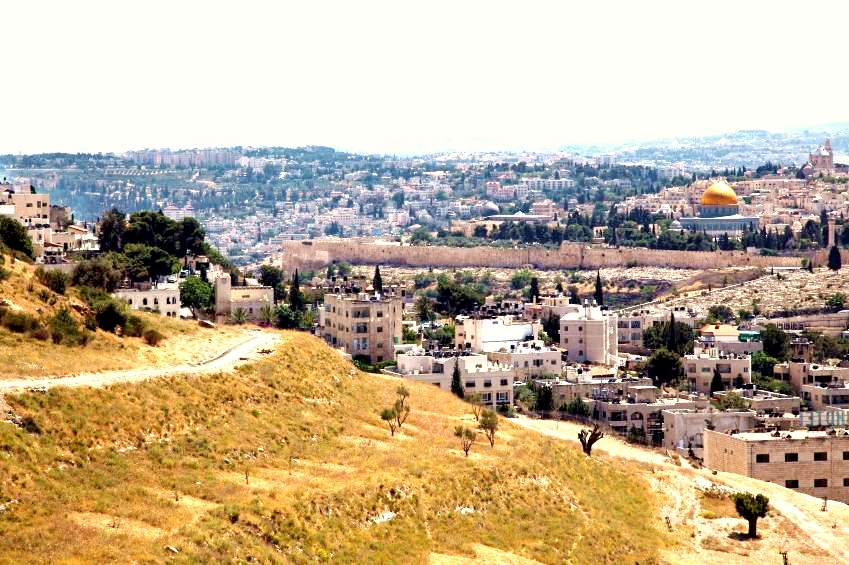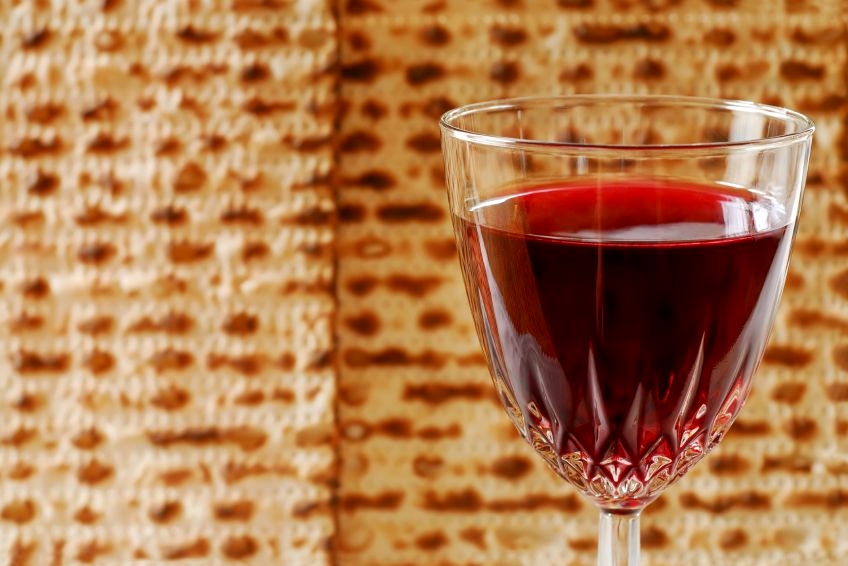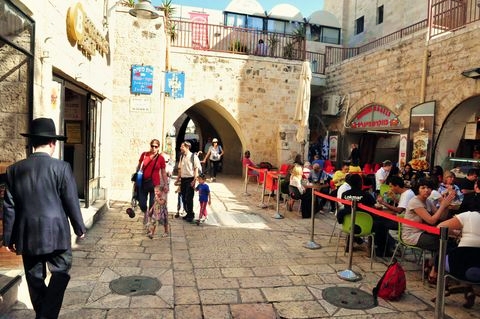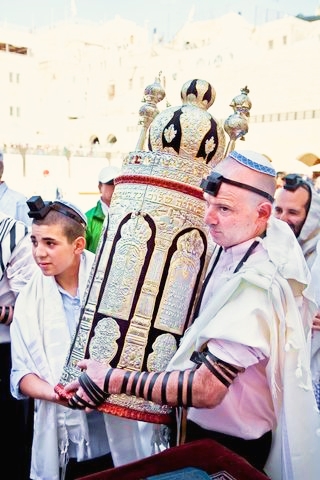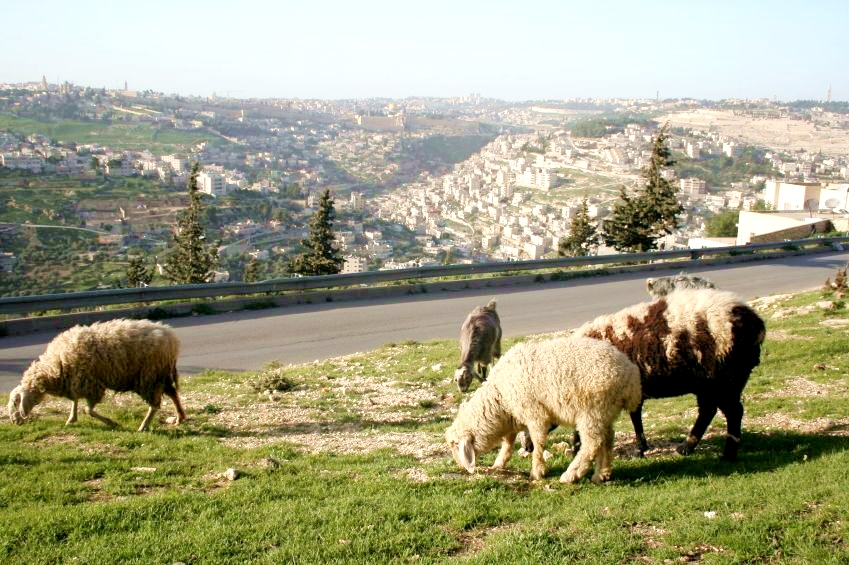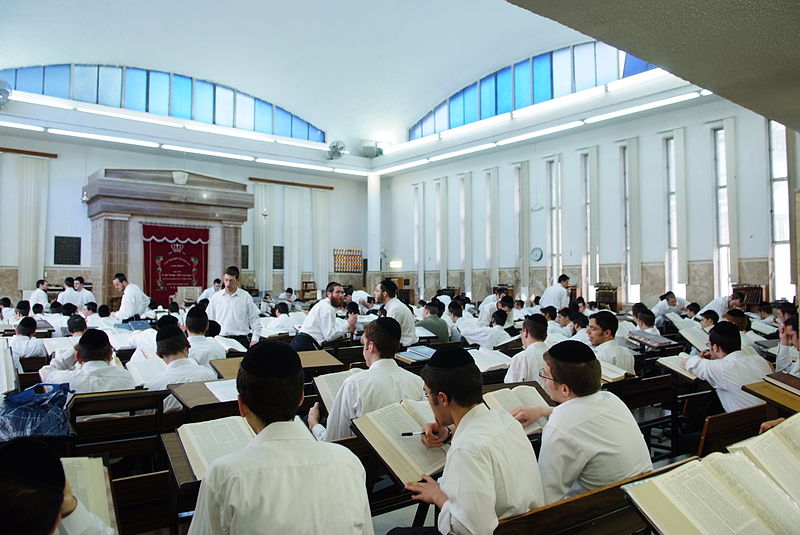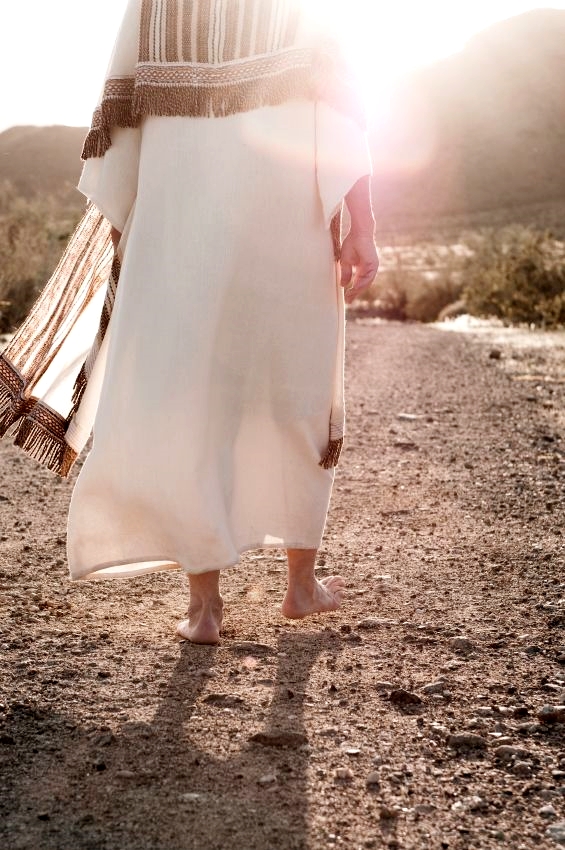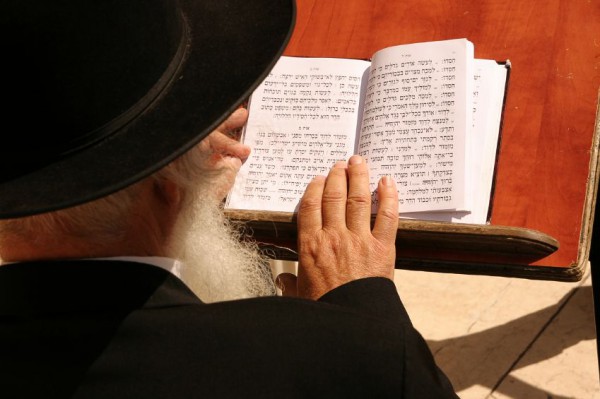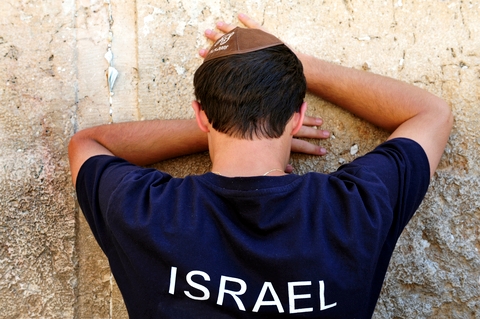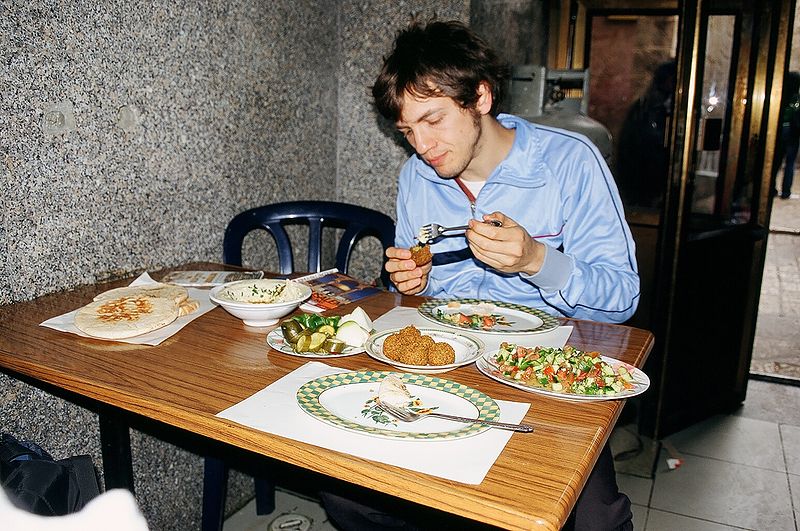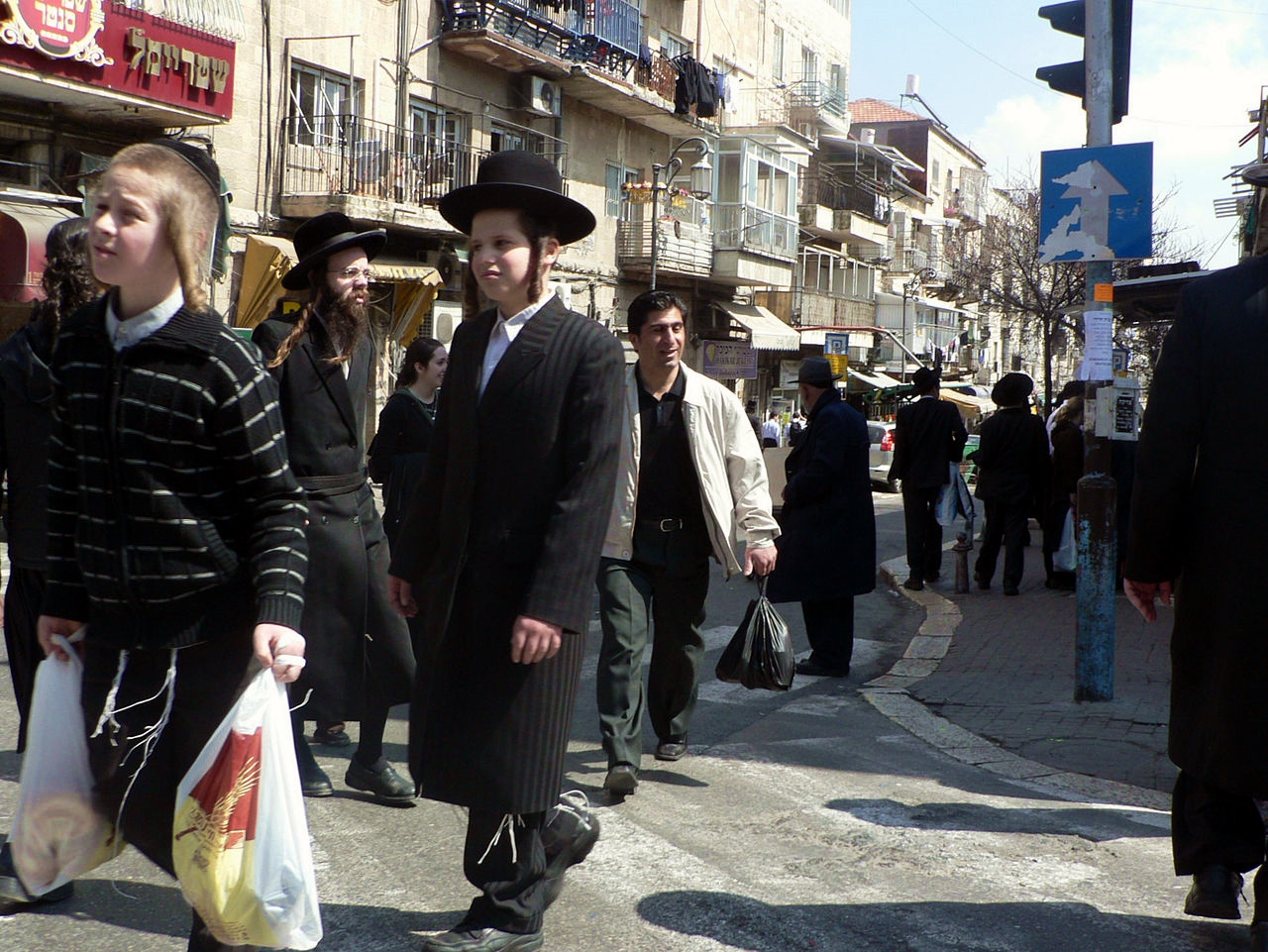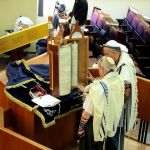Parasha Re’eh (See)
Deuteronomy 11:26–16:17; Isaiah 54:11–55:5; John 16:1–17:26
“See [re’eh], I set before you this day a blessing and a curse….” (Deuteronomy 11:26)
Last week, in Parasha Eikev, Moses promised the Israelites that they would prosper in the Promised Land if they fulfilled the commandments of the Torah. He also described the rewards of fulfilling those commandments and the exile associated with forsaking them.
This week, Parasha Re’eh begins with an appeal to choose a path in life that leads to blessing.
This Parasha reveals that God has endowed each of us with free will and the ability to make choices—for good or for evil, for blessing or for curse. These are the two courses presented to Israel, and each Israelite is free to choose.
The future of the nation rests upon their decision, and all Moses can do is show them the way.
A life of obedience to God and His commandments will lead to certain blessing, but turning away from God into idolatry will surely bring curses on the individuals and the nation.
God wants us to have the vision to see that the choices we make in life create consequences with which we are required to live.

A Jewish mother and son hold an English/ Hebrew version of the Torah (first five books of the Bible).
A Bright Future
God placed a special calling upon the nation of Israel to be a holy nation and a royal priesthood (Exodus 19:6).
They were not to worship the Lord in the way of the pagans, but were to wipe out all traces of heathenism in the Promised Land, even destroying the images and names of all foreign gods (Deuteronomy 12:2–3).
One of the heathen practices forbidden for God’s people is the eating or drinking of blood.
“But be sure you do not eat the blood, because the blood is the life, and you must not eat the life with the meat.” (Deuteronomy 12:23)
This prohibition, which is found in Deuteronomy 12:16, 23, and 24, prevents the despicable practice of eating something while it is alive, and even cannibalism. It underlines the sanctity of life and the importance of compassion to all creatures great and small.
Verse 25 also repeats this commandment: “Do not eat it [blood].”
And why not? “… so that it may go well with you and your children after you.” (Deuteronomy 12:25)
Notice here the consequence of obedience. When we do what is right in the eyes of the Lord, we and our children have a bright future. What a promise! That’s something to hold on to.
“Do not eat it, so that it may go well with you and your children after you, because you will be doing what is right in the eyes of the Lord.” (Deuteronomy 12:25)
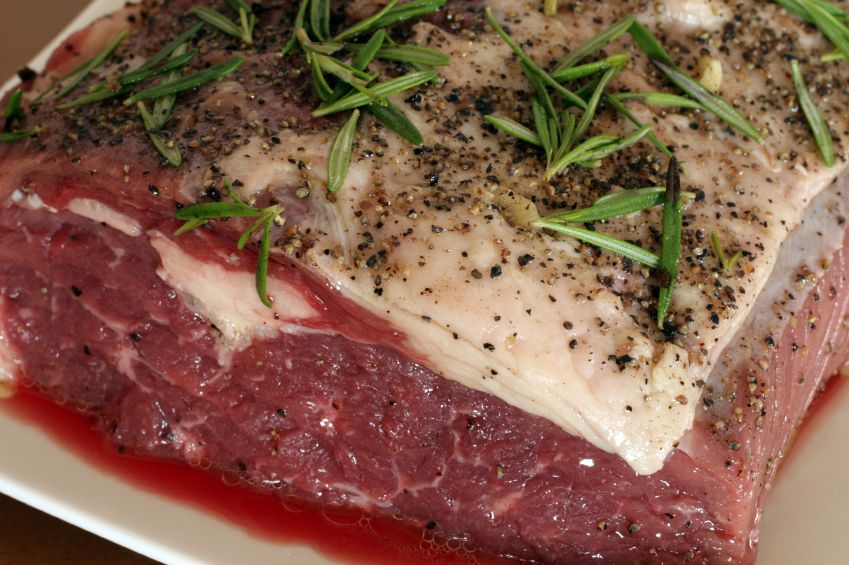
During the koshering process, as much blood as possible is removed from the meat through soaking and salting. It is okay to eat a rare steak as long as the meat is kosher because the blood has already been removed. This does not apply to blood-rich organ meat such as liver, which must be thoroughly cooked or roasted.
Blood Libel
The main purpose of the Jewish method of the slaughter and salting of meat is to drain away the blood, since Biblically kosher meat must have all the blood drained out of it before eating.
It’s a bitter irony that the one people whose faith forbids the eating of blood would suffer from the anti-Semitic allegations of “blood libel”—false claims by non-Jews that Jews perform ritual murder, using human blood for Jewish religious purposes.
One such lie invented to incite hatred toward Jewish people is that Jews use human blood to bake matzah (unleavened bread) for Passover!
From the Middle Ages until recent times, this fiction was used to provoke outrage among the masses, which led to the pogroms in which millions of Jews were massacred.
In 1935, Nazi leaders infamously used the satanic lie of blood libel in their campaign against the Jewish People to infect Germany with a hatred of its Jewish population.
Relevance for Believers
For those wondering if the commandment forbidding the eating of blood is relevant for Gentile Believers, it’s worth noting that such a prohibition was stipulated by the Jerusalem Council, which occurred around AD 50.
In the Book of Acts, James, the half brother of Yeshua (Jesus), made the following ruling:
“It is my judgment, therefore, that we should not make it difficult for the Gentiles who are turning to God. Instead we should write to them, telling them to abstain from food polluted by idols, from sexual immorality, from the meat of strangled animals and from blood.” (Acts 15:19–20)
This command is so important that it is repeated several times in Scripture. Why would Scripture devote so much attention to blood?
Amazingly, the Bible gives us a verifiable scientific fact as an answer to this question: “… the life of the body is in its blood.” (Leviticus 17:11)
Blood transports the oxygen that keeps the body alive.
It also helps rid the body of harmful waste products, heal the body through the disease-fighting cells that it carries, and repair the body from injury, among other functions.
But God also gives an additional, perhaps related reason: blood is the instrument of atonement.
In Leviticus 17:11, we read that “the life of a creature is in the blood and I have given it to you to make atonement for yourselves on the altar; it is the blood that makes atonement for one’s life.”
Furthermore, because of the blood that Yeshua (Jesus), the perfect Lamb of God, shed for sin, atonement was made once and for all for our sins (Hebrews 9:28).
“Since we have now been justified by His blood, how much more shall we be saved from God’s wrath through Him!” (Romans 5:9, see also Romans 3:25; Ephesians 2:13)
Whose Heart Is Loyal?
“For the eyes of the Lord run to and fro throughout the whole earth, to show Himself strong in them whose heart is committed [loyal] toward Him.” (2 Chronicles 16:9)
The Word of God contains many other commandments; however, the highest expression of our obedience to God is loyalty.
God is actually on the lookout over all the earth for loyal, committed people.
He requires such unwavering allegiance that He says in this Torah portion that even if an Israelite’s closest relatives and friends should try to entice them to secretly seek after and serve other gods, the enticer must be put to death (Deuteronomy 13:6–11).
Any attempt to seduce a Jewish person away from the One True God carried the most severe penalty in the Tanakh (Old Testament)—death by stoning.
Since Yeshua is widely considered by Jewish people to be a false god that Gentile Christians worship, especially when He is taken out of His Jewish context, it’s easy to understand why they object vehemently to any missionary activity.
The Messianic Prophecy of Zechariah says that the day will come, however, when Yeshua will no longer be seen by Jewish people as a foreign god named Jesus, but as an only son, and they will mourn for Him with great weeping:
“Then I will pour out a spirit of grace and prayer on the family of David and on the people of Jerusalem. They will look on Me whom they have pierced and mourn for Him as for an only son. They will grieve bitterly for Him as for a firstborn son who has died.” (Zechariah 12:10)
It’s interesting to note that this Messianic prophecy specifically states that the wives will mourn separately (Zechariah 12:12–14).
Since only the Orthodox denomination of Jews have the custom of separating men and women during religious rituals and worship, this perhaps suggests that the Orthodox Jews will come to recognize that Yeshua is the Messiah.
A Special Treasure
The rest of the Parasha deals with the laws of holiness. Israel is a holy nation unto the Lord.
The Hebrew word for holy is kadosh, which means to be set apart or sanctified for dedicated service.
Out of all the nations on the face of the earth, God chose Israel to be His own special treasure (segulah).
All true followers of Yeshua are also God’s segulah: “… a chosen people, a royal priesthood, a holy nation, God’s special possession, that you may declare the praises of Him who called you out of darkness into His wonderful light.” (1 Peter 2:9)
Through the blood of Yeshua, those who were non-Jews have been grafted into the olive tree of the Jewish blessings, becoming fellow inheritors of the covenant of God (Ephesians 2:11–13; Romans 11:17).
Paul prayed that the eyes of our understanding would be opened to see the hope of our calling in Yeshua:
“I pray also that the eyes of your heart may be enlightened in order that you may know the hope to which He has called you, the riches of His glorious inheritance in the saints.” (Ephesians 1:18)
Further on in Ephesians 4:1, he urges us “to walk in a manner worthy of the calling to which you have been called.”
This means we should be making deliberate choices every day to walk in the ways of God. And when we walk in the ways of God, we will live holy lives.
Am Kadosh—A Holy People
“You shall not eat any abominable thing.” (Deuteronomy 14:3)
In terms of maintaining a holy lifestyle, one of the first aspects that God addresses in the lives of His holy people (am kadosh) is food!
Biblical dietary laws (kashrut) serve to maintain the separateness of God’s people from the pagan nations.
Certain animals are clean (tahor) and others are unclean (tamay). Unclean meats may be sold to a foreigner but are not permitted for holy people (Deuteronomy 14:21).
Later on in the Parasha, God reveals that holiness expresses itself in love for our neighbor. He commands Israel to be generous in giving to the poor and needy in the Land:
“You shall not harden your heart, nor shut your hand from your needy brother; but you shall surely open your hand unto him….” (Deuteronomy 15:7–8)
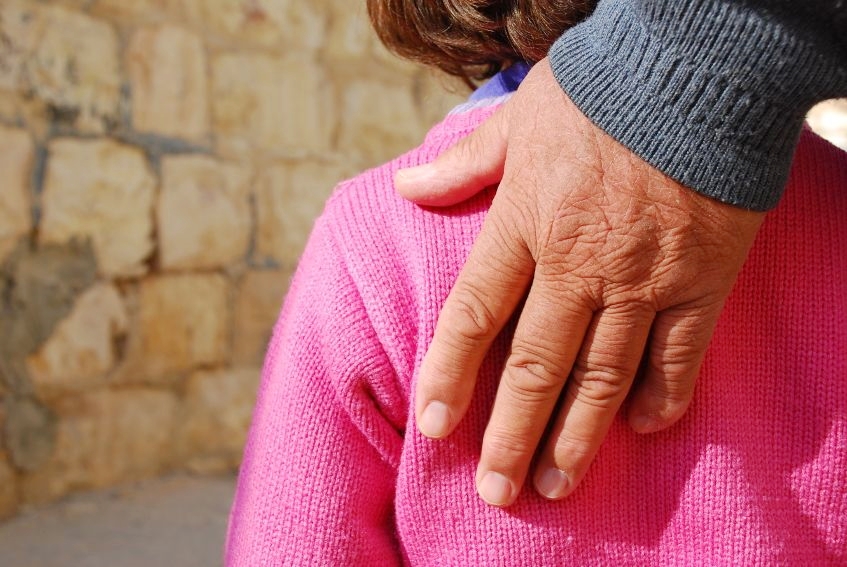
“Pure and genuine religion in the sight of God the Father means caring for orphans and widows in their distress and refusing to let the world corrupt you.” (James 1:27)
The poor will always be with us (Deuteronomy 15:11), and Scripture makes it abundantly clear that we are to give generously to the poor and needy in the Land.
God promises that if we obey Him in this, then He would bless us in whatever we put our hand to:
“If there is a poor man among your brothers in any of the towns of the land that the Lord your God is giving you, do not be hardhearted or tightfisted toward your poor brother. Rather be openhanded… then because of this the Lord your God will bless you in all your work and in everything you put your hand to.” (Deuteronomy 15:7–10)
Believers might be missing out on their greatest blessing if they fail to realize the importance of this command.
Likewise, God made a promise to Abraham, Isaac and Jacob (Israel) and to their descendants that He will bless those who bless the Jewish people (Israel) and curse those who curse the Jewish people (Israel) (Genesis 12:3).
In the Brit Chadasha (New Testament), the apostle Paul exhorted Gentile Believers in Yeshua to give materially in exchange for all they have received spiritually through the Jews (Romans 15:25–27).
“For salvation is of the Jews.” (John 4:22)




